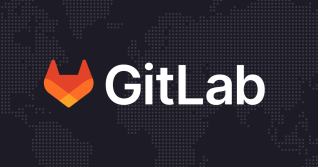This is the final part of our three-part series on diversity, inclusion and belonging. Part one focuses on GitLab's diversity goals and efforts to date. Part two examines some of the challenges with diversity, inclusion, and belonging in the tech industry as a whole, and shares some recommendations on how to overcome them.
People of color are more likely than any other group to voluntarily leave their jobs in the tech industry due to persistent unfairness in the workplace – whether that is due to stereotyping and discrimination, or because opportunities for career advancement are lacking.
In the Tech Leavers Study by the Kapor Center for Social Impact, one-quarter of men and women from underrepresented groups reported experiences of stereotyping in the workplace.
“One of the discriminations that I’ve had to deal with outright is my size and my skin color," says Sharif Bennett, mid-market account executive at GitLab. “I’m about 6'3 and some would relay back to me that people that had a conversation about me and one of the things that were said about me was that I was intimidating and scary."
The persistence of stereotyping and discrimination in the tech workplace is just one reason why employee resource groups (TMRGs), such as GitLab’s Minorities in Tech (MIT) TMRG, are so important. TMRGs allow team members to create a safe space for cultural exchange, connection, and opportunities for growth and mentorship. Beyond the benefits of creating a more inclusive workplace, TMRGs can help support diversity initiatives, such as offering community insight into culturally sensitive marketing campaigns or recruiting and advancing top talent from diverse talent pools.
Inside the MIT TMRG
In fall 2019, Candace Byrdsong Williams, diversity and inclusion partner, and GitLab team members launched four TMRGs: Pride, Women, DiversABILITY, Minorities in Tech (MIT), and the Gender Minorities TMRG is new and forthcoming.
One of the TMRGs that has come the furthest since the launch is the MIT TMRG, led by Sharif, and Aricka Flowers, manager, Digital Production at GitLab. MIT aims to create a safe space for underrepresented minorities to communicate, unite, and share experiences while working at GitLab, but participation is open to allies as well.
"With the MIT TMRG, we aim to create a safe space for minority-identifying GitLab team members and allies to come together and have a measurable impact on how our company not only increases the diversity within our workforce but also retains and supports those who are from underrepresented communities," says Aricka, co-lead of the DIB Advisory Group. “As we launch into our first full year of operation, we have identified four priorities for the MIT TMRG and are piloting a mentorship program that gives members direct access to top leadership and enables increased support and visibility for, and communication from, diverse voices within our organization."
MIT has four major initiatives for 2020:
- Recruit more underrepresented minorities to different roles at GitLab
- Participate in external events (now virtually) with community partners
- Internal outreach to encourage more participation from underrepresented minorities and allies at GitLab (e.g., create an internal newsletter)
- Launch of the MIT Mentorship Program, which connects underrepresented minorities with mentors who could range from people managers to senior leadership
“We’ve all been at organizations where we’ve felt there has been a lack of mentorship for people of color and minorities," says Sharif, who along with Darva Satcher, backend engineering manager Create:Knowledge and Create: Editor at GitLab, is leading the mentorship initiative.
“Mentoring generally happens with executives and most of the time they mentor people who remind them of themselves," says Sharif. "We wanted to develop a program that was geared toward people of color and members of the group to gain exposure as to what goes on at the executive level and c-suite executive level."
MIT TMRG launches mentorship program
Today, GitLab has no Black or Latinx folks in leadership positions. The lack of representation for people of color at the leadership level at GitLab is a significant problem, and we are committed to remedying this by hiring or promoting a Black leader to the director level or above by 2021. Read part one of our blog series to learn more about our DIB strategy.
One of the best ways to make GitLab, and the tech leadership landscape at-large, less white and male is to create opportunities for advancement specifically for people of color. Creating opportunities for growth for underrepresented minorities through mentorship with executive and senior leadership is among the most valuable diversity initiatives a company can launch, according to the Harvard Business Review (HBR).
The MIT Mentorship Program pilot program kicked off in June 2020, and has matched 20 underrepresented minorities at GitLab with managers and executives who have taken a similar career path. The mentee-mentor pair will identify a problem at GitLab and will work together on a project to address this gap. For example, Romer Gonzalez, mid-market account executive for Latin America, at GitLab and co-lead for the DIB Advisory Group, will be working with David Hong, VP of field operations at GitLab, to expand GitLab’s footprint in Latin America.
The program lasts from late June to early August 2020, and ends in a virtual showcase in September.
We need allies in leadership
We have encouraged leaders to set the tone by creating a safe space to talk about the everyday experiences of bias, discrimination, and microaggressions that so many underrepresented minorities face in the workplace. During the DIB roundtable discussion during GitLab's company-wide meeting known as Contribute (virtual for 2020), executive leaders engaged MIT TMRG members in an honest conversation about discrimination and microaggressions in the workplace. By creating a space for candid discussion about a painful and personal topic, our leaders are taking an important step in cultivating a more inclusive work culture.
Sharif points out that it cannot be the responsibility of underrepresented minorities in MIT or the other TMRGs to launch diversity initiatives – allies need to join the conversation and use their privilege to advance these initiatives.
“Big wins will come from interrogating seemingly mundane practices and processes, and holding managers and leaders accountable for progress toward your organization’s aspirations," Dr. Melissa Thomas-Hunt of Airbnb told HBR.
The good news is, we continue to make progress at GitLab because we have made DIB a strong priority for our company.
DIB is an opportunity for GitLab
Building a diverse and inclusive work culture where everyone feels a sense of belonging can feel daunting, but it really depends upon your mindset, says Candace. The business case for hiring from a diverse talent pool and creating growth opportunities for underrepresented minorities is clear, but there is also intrinsic value that comes from creating an inclusive company. By perceiving DIB as an opportunity and solution, as opposed to a problem, we can go much further.
"In tech, we’re always taught to ask what is the problem we’re trying to solve and so I would always advise fellow companies that diversity, inclusion, and belonging isn’t a problem to solve. It’s an opportunity and it’s something we should leverage," says Candace.
A sincere thank you to Candace, Aricka, Sharif, and the whole Minorities in Tech (MIT) team for sharing valuable insights to help make this blog series possible, and thank you to our colleagues who are committed to making GitLab a more inclusive workplace.
Read part one of our blog series to learn more about our journey and strategy to accelerating progress in DIB at GitLab, and part two to unpack some of the diversity challenges of the tech industry, and how different companies are prioritizing DIB initiatives.





